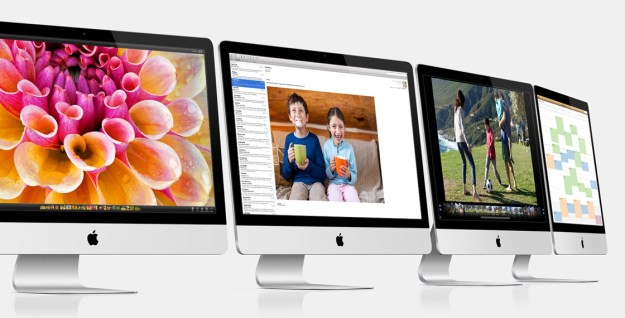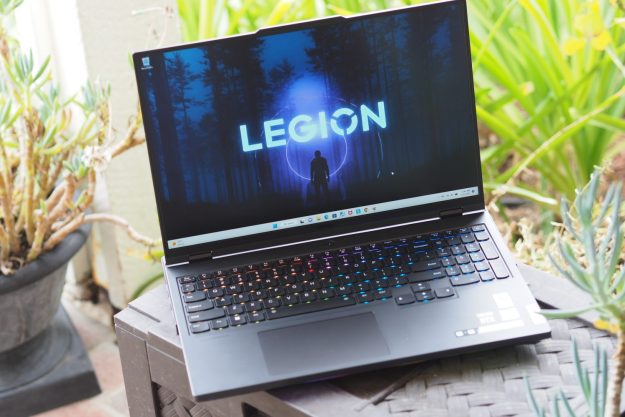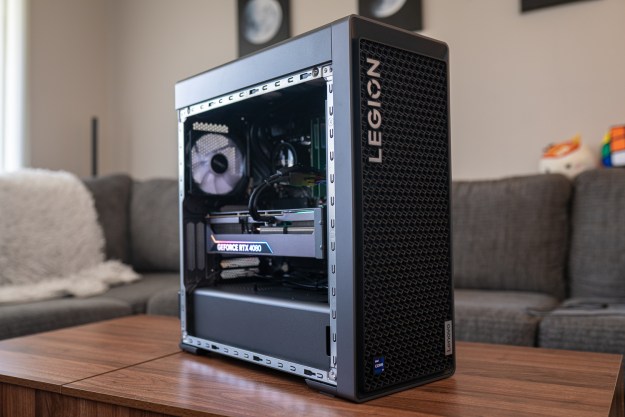
Apple’s latest iMacs have finally started shipping to customers. As usual, iFixit did a teardown; but something stood out on the surface that they noticed before taking apart the computer: at least some stock models of the new iMacs bear an “Assembled in USA” label.
This isn’t inherently shocking or unusual. Apple’s original Macs were assembled in a “factory of the future” in Fremont, California; and throughout the 1990s and into the 2000s, Apple continued to manufacture both Macintosh desktop and PowerBook notebook computers at manufacturing facilities in California and Colorado. However, after Steve Jobs resumed the CEO chair and Apple began to exert its now-infamous control over its component supply chain and manufacturing process, Mac manufacturing largely shifted to Asia by 2004, with only some custom-configured and refurbished products reaching American consumers with an “Assembled in USA” label.
What could an “Assembled in USA” label mean for Apple? Is it just a short-term fluke to get around short-term manufacturing or supply constraints? Or could it say something significant about Apple’s Macintosh business … and Apple’s ability to play politics?
Assembled in the USA

The U.S. Federal Trade Commission defines the criteria for its “Made in the USA” and “Assembled in the USA” labels. The labels have been the target of political wrangling over the years, and some companies have been forced into settlements for making inappropriate claims. Major cases have involved manufacturers of drugs and power tools, but also CD drives and a wide variety of consumer products. Even fabled guitar maker Martin got dinged over the issue in the 1980s with some instruments assembled in Japan.
The labels are intended to help consumers identify products made in (or at least put together in) the United States. The presumption is that purchasing those products helps sustain American businesses and jobs. The FTC does not pre-approve claims. Manufacturers can slap anything they like on their products, and the FTC gets involved only if there’s a complaint. If the manufacturer can’t back up their claim, they’re subject to enforcement action – and their competitors have great grounds for a lawsuit.
An “Assembled in USA” claim requires a product’s “last substantial transformation” happen in the United States even if the components of a product are manufactured overseas. However, this requires more than a “screwdriver” assembly of the parts at the end of the process. For Apple to be putting “Assembled in USA” labels on some new iMacs, the company is claiming that it’s doing more than slapping together components into a finished whole.
In the case of Apple’s new iMacs, no one outside of Apple really knows what that might be, and iFixit’s teardown isn’t particularly illuminating. It might be putting together the individual components of Apple’s new Fusion Drives; it might be the gluing and bonding process for the iMac displays (which, likely, is more involved than “screwdriver” assembly); or it might be those vibration-suppressing gaskets on the hard drives. It might be all those and more – nobody knows.
As is their wont, Apple did not immediately respond to a request for comment.
Some possibilities

Why might Apple have shifted some iMac assembly back to the United States? We don’t know, but we can speculate:
Capacity constraints – Although there have been some reports that Apple’s latest iMacs are facing component supply limitations (particularly with their displays), it’s possible that Apple has temporarily shifted some iMac manufacturing to its remaining United States facilities in order to meet projected demand for the systems. Apple already performs (or contracts out) work for built-to-order machines in the United States, and it’s possible those facilities have been shifted to assembling new iMacs on a temporary basis. New iMacs sold outside North America reportedly carry “Assembled in China” labels, although some in the EU also apparently bear “Assembled in Ireland” labels. Like Apple’s facilities in California, Apple also has a facility in Cork, Ireland, where it assembles built-to-order systems. Apparently, that’s in use for new iMacs, too.
Politics – Historically, Apple has not engaged in the kind of lobbying and costly political glad-handing performed by some other tech giants (such as Microsoft, Oracle, Dell, and HP). However, Apple has nonetheless been repeatedly criticized for shifting manufacturing jobs overseas, and it’s worth noting much of that transition was overseen and executed by current Apple CEO Tim Cook. In early 2011, President Obama had dinner in California with a number of Silicon Valley tech leaders, including Steve Jobs. Obama pointedly asked Jobs what it would take to make iPhones in the United States. Jobs’ characteristically blunt reply was reportedly: “Those jobs aren’t coming back.” The issue flared again in October during the U.S. presidential debates when moderator Candy Crowley specifically asked how the candidates would convince manufacturers to shift jobs back to the U.S., pointing out the iPad, Mac, and iPhone are all assembled in China. For years, Apple has also been taken to task for conditions at Foxconn plants in China that manufacture Apple products. Some of those stories were fabricated, but Apple nonetheless requested the Fair Labor Association investigate working conditions at the Foxconn facilities. Earlier this year, Apple CEO Tim Cook indicated at the AllThingsD conference that he would like to see Apple shift manufacturing back to the United States.
The Mac business ain’t what it used to be – Another intriguing possibility is that the volume of Apple’s desktop computer business is no longer large enough that it makes sense for Apple to assemble all of its systems in China. Apple doesn’t offer model-by-model breakdowns of Mac sales, but the company’s sales figures for the fourth quarter of 2012 (PDF) show that Apple’s desktop Mac sales declined 24 percent compared to the fourth quarter of 2011 to a volume under 1 million units. Compare that to almost 4 million notebook computers shipped in the same period … not to mention 14 million iPads and almost 27 million iPhones. Although Apple doesn’t offer details of its build-to-order program, certainly a greater proportion of the company’s ever-aging Mac Pro line are custom orders rather than stock systems. After all, these are the expandable systems used by video editors and media pros. Similarly, it may be reasonable to assume a significant percentage of iMacs and Mac minis are also custom orders. With many of those systems requiring assembly and configuration outside of China anyway, the volume of “stock” desktop systems may now be low enough that Apple doesn’t gain any significant advantage from doing assembly for the U.S. and European markets in China.
All of the above?
Given Apple’s famously secretive nature, we’ll probably never know why some iMacs carry “Assembled in USA” labels. It seems likely that several factors went into the decision, and the real proof will be whether iMacs retain those labels over time, or if perhaps additional Apple desktop systems (like the Mac Pro refresh Tim Cook promised at WWDC as “something really great”) also bear “Assembled in USA” labels. Wouldn’t it be ironic if Apple were actually shifting assembly jobs back to the United States – even if not for its iPhone and iPad product lines?
[iMac label image via iFixit]


